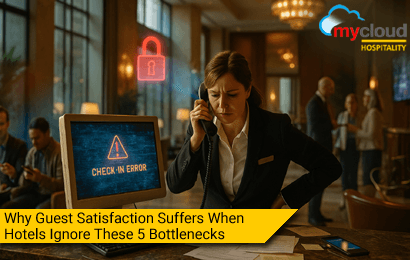Well, it seems that millennials are here to destroy everything after all. I’m just joking; this generation is very focused on changing things and it’s usually for the better. The reason why millennials get a bad rep is due to the fact that many industries have a problem attending to the standards and priorities that this generation has. Millennials are not afraid to ask difficult questions in the workplace and they will complain if they feel mistreated in any situation.
The hospitality industry has faced the biggest challenges when it comes to adapting to these requirements millennials have. This generation is a bit more experience focused and they tend to distance themselves from the traditional sand and sea vacation.
One of the things that people under 30 like a lot is travel. From bookings to checkouts, hotel technology (such as cloud-based hotel pms )plays a vital role in the hospitality industry and its significance will continue to grow.
Let’s talk about the latest technologies applied by the hospitality industry in an attempt and bridge this gap.
1. Internet of Things (IoT)
Imagine entering a room and personalizing it to your specific needs in no more than 30 seconds. This is what IoT (Internet of Things) devices may bring into the hospitality industry. Hilton has already built a beta test room which includes voice control and app controls to manage various options like setting the temperature, adjusting the light and so on.
Imagine having free Wifi (with the option to pay for a wifi speed boost). This will lead to seamless connectivity across devices. For example, you can use your phone to control the TV or the Boombox in your room. Hell, you can even use it as your hotel room key.
Even though these kinds of rooms won’t become available for the general populace in the next few years, the reactions of both competitors and consumers are very positive.
2. Chatbots and AI
Efficiency, availability and instant information – These three things are extremely important for hotels and other hospitality industry businesses. This is where chatbots step in to save the day. A well-made chatbot can answer all the crucial questions a potential customer might have which is especially useful during the booking process. The AI side of things allows the bot to learn and adapt it answers, making it more reliable over time.
Hotels and vacation spots get the most out of this kind of tech since they are contacted by potential guests outside their working hours, due to time zone differences, or, well, any other reason. A chatbot keeps the contact engaged and answers their questions until they are contacted by a real employee.
3. Energy efficiency
According to Booking.com as many as 65% of worldwide travelers prefer eco-friendly lodging. Now, establishing eco-friendly conditions in a hotel and still providing a top-notch experience is a bit tricky but far from impossible. The reason why this piece of information is so big is the double value that a hotel gets out of this. On the one hand, you are getting new customers and new ways to promote your establishment; on the other hand, you save money on your energy bill. Sure it takes planning and investments. but the payoff is more than worth it.
4. Wireless charging
Stereotypes about millennials do exist, but when the shoe fits, it fits. To be honest, leaving a person who is used to their smartphone without access to it is like taken a wand from a wizard – This person can do wonders but not without his/her essential tool. Since Apple joined the Wireless Power Consortium and agreed to add Qi charging to their future phones, it is now safe for hotels to invest in this technology.
5. Chat interaction with hotel staff
As many as 39% of hotel visitors claimed to be absolutely comfortable getting in touch with hotel staff via chat. As a matter of fact, only 7% answered that they would find this form of interaction unsuitable. Some hotelier magnates like Hyatt and IHG Group have already started using third-party chat apps and with great results. According to statistics provided by Statista we are going to see as many as 2.5 billion people using messaging apps to communicate which puts this transition in perspective.
Yes, it seems that the future is around the corner and the hospitality industry is taking large steps to keep up. Tech is driving changes in most industries and it is no wonder that we now see the same situation here. The world is getting more connected which is a good thing for this industry – the important thing is not to lag back and adapt to new trends in due time.










